Wendy and Marty Byrde have such a complex relationship in Ozark. Their relationship was definitely done in a very atypical and tumultuous way, however they were capable of showing us throughout that deep down they understood each other's motivations and therefore they really did love each other. Oddly, theirs is a love story indeed. In Season 1 they were dealing with the trauma and fallout of Wendy's cheating but it culminates with a rekindling of their intimacy bond in the episode fifth, then a subsequent argument in the sixth episode where they get to the crux or their marital issues at the time.
Marty had shut himself down emotionally within their marriage after starting to launder for the Cartel, and Marty justifies his detachment saying to Wendy: "I was trying to protect you." Marty also confesses Wendy's resultant affair had broken his heart. At the end of season 1 they manage to apologise to each other. Starting off Season 2 they look like they're happy and in a good mood, Marty observing her with desire while she is doing her political maneuvers in the first episode. Episode 7 - Wendy has to stabilize Marty through dealing with having killed Mason. Marty seems to accept half-heartedly a convenience kiss from Rachel while he's being spied by the FBI and feeling low.
Season 3 - They are still at loggerheads to an extent at the beginning but in episode 4 Wendy eventually breaks down and is devastated at the thought of losing Marty when he is kidnapped and taken to Mexico. Likewise Marty feels terribly upset at the thought of not seeing his family again. They share a beautiful tender moment when he gets back home in episode 5. In episode 6 they are back to explosive rows in front of psychotherapist Sue and they seem to split up for a while. But not for long though because in episode 8 Wendy includes him in her speech during the Foundation event at the casino, and Marty is there for her when she has to get Ben committed at a mental health facility. After all the turmoil regarding Ben in episode 9, Marty assures to Wendy she is their whole life and that he and the kids love her and need her.
Marty comforts Wendy through her grief, he calms her down when she is panicking. And when she comes back in episode 10 Marty acts so tender with her and gives her exactly what she needs; he listens to her, and offers her relief from guilt. Ultimately she pulls herself together and they share a smile with each other in the bathroom as they move forward with their plan in regard to Helen at the end of the episode. In Season 4 they are working together on the FBI deal and looking forward to their future together. Marty is also there for her through it all when her awful father Nathan reappears and tries to take their kids. Marty even doesn't seem particularly fazed when he finds out as he is just leaving for Mexico in episode 9 that Omar Navarro had threatened to kill them before Wendy got him moved but he clearly trusts her instincts. When Marty finally arrives back from Mexico in episode 11, he is looking at her while he's hugging Charlotte and they are just looking at each other with mutual admiration and affect.
In the episode 11 when Marty gets into the road rage fight, they are angry with each other but he defends her anyway against a jerk who doesn't know with whom he's dealing. The music accompanying this scene as soundtrack is about someone who experiences a moment of clarity where they realize that they do love a significant other, and as in the song, "they see the light." As he's walking away to avenge Wendy, the lyrics are pretty telling: "But I love you best/It's not something that I say in jest/'Cause you're different, girl, from all the rest/In my eyes/And I ran out before/But I won't do it anymore/Can't you see the light in my eyes (in my eyes)." This theme totally fits with the conflict that Marty has been fighting about Wendy during their marriage but then it's this road rage incident leading him to defend Wendy what solidifies in his mind that he does in fact love her.
Then when he picks her up after she gets out of the psychiatric unit in episode 14 Marty tells her he basically loves her unconditionally. After the car accident when she takes a little longer to wake up, the thought he might lose her reaffirms to him that she and their family come before everything else. Which sets it up beautifully for the ending where Marty appears so resolute about Ruth's demise being an inevitable sacrifice (like Wendy's sacrifice of Ben), necessary to protect their family. Then we have their subsequent conversations while at the gala where they reaffirm that they are on the same page, they reaffirm their love for each other in the car as they arrive home, and they both appear to mean it when they say I love you.
It's a story arc that spans the entire series from start to finish and there are just so many little moments, both spoken and unspoken where you can see the attraction and love between them. The complexity of their relationship is what makes it so fascinating to watch. And both actors, Jason Bateman and Laura Linney have such understated chemistry that you can see how they feel about each other just by watching them interact with facial expressions. Their more tender moments are made even more special by the fact that they’re few and far between and are actually deep moments - not a gratuitous display of sex scenes. They grew closer together through all of this and truly learned who the other was. And in spite of the negative things they may have done to each other, they both chose to stay together because they love each other.
It was refreshing to see a married couple go through and overcome issues that are common to a lot of couples (albeit not as extreme or life threatening) like infidelity, parenting struggles, mental health problems, distrust, different goals, and come out stronger than ever, loving each other in spite of/because of those flaws. Some characters as Ruth or Rachel regularly projected their own dislike of Wendy on their relationship because they saw how much he loved her and they couldn't handle it. Ruth calls once Marty "cuntstruck". Rachel is visibly jealous of Wendy too. The scene where Marty threatens Ruth and she asks 'is this Wendy?' and he points at himself -- we knew then that it would always be Wendy over anybody. A big part of the show is that inexplicable level of love Marty has for Wendy, no matter how crazy she drives him or how 'hard to love' she is sometimes. Source: medium.com











.jpg)











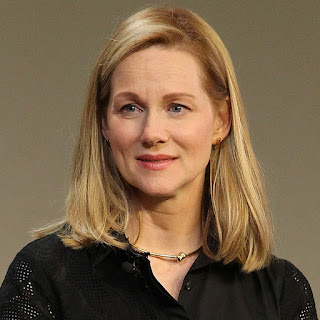

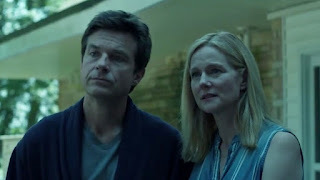



.jpg)
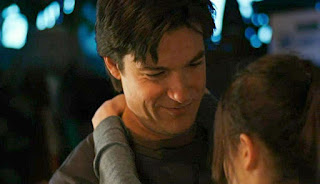



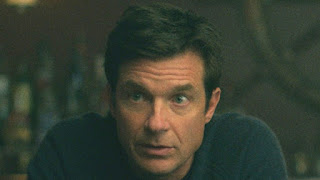




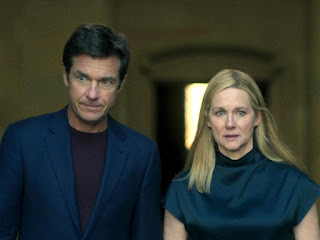


.jpg)

























